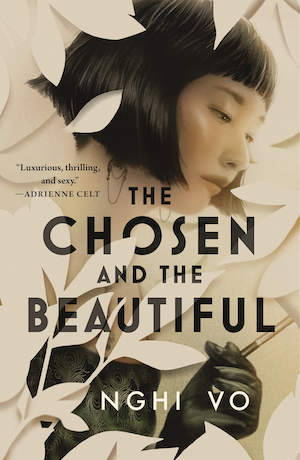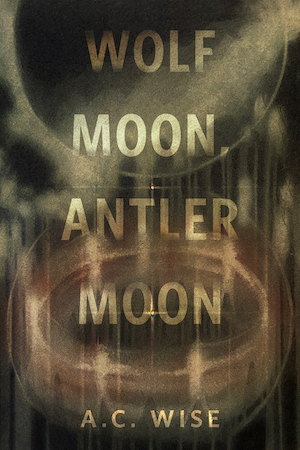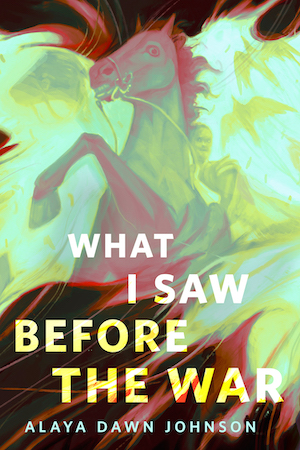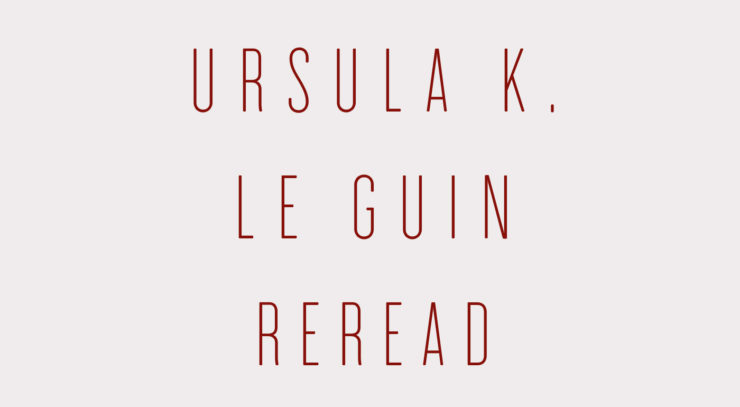A biweekly series, The Ursula K. Le Guin Reread explores anew the transformative writing, exciting worlds, and radical stories that changed countless lives. This week we’ll be covering all of Le Guin’s novel Malafrena (1979). My edition is included in the 2017 Gollancz collection Orsinia.
Some weeks ago we took a look at Orsinian Tales. Though hardly my favorite among Le Guin’s oeuvre, the tales are like fine pastries. Each is a sufficient treat in itself, a work of art, layered with flavors and textures—rich through and through. Some outshine others, but on the whole everyone will find something to bring them satisfaction. Malafrena, by contrast, is a Costco cake. Good, satisfying even, and—if we’re talking about the same Costco cake—sometimes a too-rich delight that takes a marathon to finish (and mostly because you remember that first taste and can’t bear to let the rest go to waste).
Food metaphors aside, Malafrena is a curiosity in Le Guin’s writing, which we might call a fan fiction of triple-decker French and Russian novels, an odd mix between Fyodor Dostoevsky and Victor Hugo.
It’s a disappointingly one-note gimmick of a novel, even if it is drawn with Le Guin’s usual exquisite attention to worldbuilding detail and to character. Unlike just about everything else Le Guin wrote, Malafrena leaves me feeling duped—I read 350 pages for what? And I’m sure you might disagree; Malafrena is, after all, a better novel than about 90% of what gets published (it’s certainly comparable in craft to several of the “notable” Literary novels published that year and better than just about every bestseller in 1979).
Malafrena tells the story of Itale Sorde, the son and heir to an estate in the mountain province of Malafrena at the far edge of the imaginary Central/Eastern European nation of Orsinia. The novel takes place over the course of three or four years in the mid-1820s, shortly after the final defeat of Napoleon Bonaparte and the reestablishment of a brief sense of geopolitical stability in Western Europe. Austro-Hungary dominates most of Europe between France and Russia and has recently taken Orsinia as a new province, as punishment for Orsinia’s king siding with Bonaparte against the monarchies of Europe. As a result, Orsinia’s king has been exiled and an Austrian duchess has been placed in power over the nation.
The educated young men of Orsinia want to achieve a very specific liberal vision of Freedom: no Austrian rule, the Orsinian king in power, and pseudo-representative democracy in the form of the General Estates. The landed gentry and aristocracy want fewer taxes. Into this world marches young Itale Sorde, recently graduated from college and ready to leave his father’s mountain estate to be an impoverished writer in the capital of Krasnoy, his pen ready to write the monarchy back into power.
The novel largely focuses on Itale’s decision to move to Krasnoy (which causes much ire from his father and provokes much excitement among childhood friends), what he does there, and how his political career develops. In Krasnoy, he becomes the darling young radical acquainted with the baronate Paludeskar family and eventually becomes the lover of Luisa, the baron’s daughter. He rises among the revolutionary wordsmiths and poets of Krasnoy, starting a literary journal, writing articles about the awfulness of life under the Austrians, and generally spending a lot of time in coffee houses talking shop about what could be… Eventually, he makes his way to the northern industrial city of Rákava (site of one of the better Orsinian tales) where he gives repetitive speeches about being Free, learns about living conditions among the poor who work at the factories, and gets arrested for his political sedition. After two years in prison and a brush with typhoid, he returns to Malafrena disabused of his political commitments, unsure what visions of the future or which people in his life to put faith in, and at very end strolls through apple orchards with his childhood friends and family.
Yep, that’s the novel. All 350 pages. Did I leave out the great political scenes? The awesome battles for freedom? The contentious debates over whether or not Itale’s brand of liberalism is leaving anybody out or might be improved upon? Nope. That’s the novel, with all of its disinterest in critiquing the political ideals it manifests through Itale’s life. It is potentially a novel about the death of visionary spirit as it is sacrificed in an effort to bring about change, but Malafrena is too tepid a story in vision and political drive to warrant such minor praise. If anything, it is an effective novel for how it so artfully describes the world of fictional Orsinia, going beyond the stories of Orsinian Tales to provide a panoramic vision of the nation that never was. Le Guin’s prose is on fire, goaded to new heights of craft by the sort of literary “classics” that inspired the writing in the first place. But beyond that? Ehh.
How can it be that Malafrena is both good and pointless? This is largely a question of analysis, of what I like and don’t like, and for what reasons. What I don’t like is novels about sad poet-boys in the 19th century who come from well-off backgrounds, slum it with the poor, try to use their high learning to “free” the poor, and cast about for the cause of Liberty, Equality, and Fraternity until something goes (slightly) wrong and they put that past behind them, return to their families or otherwise come into money again, and nod farewell to the reader. Why I don’t like these novels is because they were inevitably written for a certain type of reader who fancied a life of revolutionary ideas but whose greatest enactment of those ideas was reading about them being fought for by others. (Here come the Victorianists to tell me I’m wrong, they were actually very revolutionary; in any case, who am I to talk, sitting here at my keyboard?)
Malafrena is weirder, though, because it’s not a 19th century-novel. It was written and published in 1979, just at the end of the two-decade upheaval in American culture known as the “long sixties” and just prior to the return of conservative normalcy with the 1980s. It’s a historical fiction of a period that saw liberal revolution throughout Europe and yet it’s also not particularly engaged with or critical of actual historical events in Europe. It’s a vague, distant commentary on those events, set in an invented land whose most concrete relevance to history is a series of references to the Napoleonic wars and the state’s recent annexation into the Austro-Hungarian empire. What’s more, the “radical” movement is to reestablish the Orsinian monarchy so that the King can uphold a constitution that allows for a Western European-style General Estate of representatives. There are occasional suggestions (a mention of Itale writing about seamstresses in Krasnoy; his visit to factories in Rákava and discussion of poor living condition) that labor issues might play some role in the Freedom movement, but these are only hints.
Yet, when Malafrena appeared, it was pretty well praised by the literary establishment, with Kirkus even calling it “Le Guin’s masterpiece to date—a provocative adventure firmly founded on an unmodish and undeviating nobility of style, of mind, and above all of responsible imagination.” Reader: there’s nothing provocative or adventurous about Malafrena. For the literary world, not the genre world, Malafrena represented “proof” that Le Guin was a real writer, despite the fact that the 1970s saw her rise to genre fame with some of the most incredible and important novels written in both science fiction and fantasy in the 50 years since. And maybe that inkling of literary noblesse oblige woven throughout Malafrena is why I find it so underwhelming, boring even. Because I spent years reading novels like this (actually, the novels Le Guin is fanfic’ing) to get a PhD in English so I could write about what I wanted to write about: genre and popular fiction. And I’ve never believed in the hierarchy of cultural capital that the literary canon is meant to signal and enforce (except as a thing itself to be studied, a marker of what we are meant to take seriously and find meaning in).
But is Malafrena worthless? Hardly. Le Guin wrote it. I don’t like it, not a bit, and I’ll actually be popping my copy of this book into the local “free library” outside the neighbor’s house, but Le Guin had her reasons for writing it and as a critic who cares very much about what Le Guin did, I have to take this novel seriously. And there’s a great deal here to consider. For one, and perhaps most pressingly, let’s consider how Le Guin pivots from the radical anarchism of her earlier work to the liberal revolutions of Europe in the late 1700s and early 1800s.
As a background, it’s important to know that the period between the 1760s and 1840s saw radical upheavals in economics, politics, and social organization that drastically reshaped life in Western Europe and the Americas, from revolutions in America, France, Haiti, Germany, Italy, Greece, and elsewhere, to the rise of industrialism and a boom in urban population centers that exacerbated poverty and raised the wealth of a new class called the bourgeoisie. It was a time of mobility—enriching some, impoverishing most—that saw the rise of a newly educated base of thinkers reading philosophy and imagining (slightly more) equal societies.
It makes some sense, then, for an anarchist to want to write about this period. Put simply, there was no anarchism without the ideas laid down by the thinkers who made the democratic revolutions in America, France, Haiti, German, Italy, Greece, and elsewhere possible, and one of anarchism’s particular griefs with these revolutions was their distinctly nationalist natures: “Freedom for Greece! Freedom for America! Freedom for France! Give us a voice under the auspices of the State!” What’s odd, though, is that Le Guin doesn’t critique the nationalism and statism of the Orisinain revolutionaries; instead, the “revolution” (which never comes about in the course of the novel, but which is glimpsed time and again at various stages throughout Orisinian history in Orsinian Tales) is constantly mocked by the nobles Itale comes into contact with as a fancy of “college students” (has anything changed?!). Eventually, thanks to Itale’s minor success and friendship with the titled Paduleskar family, as well as the popularity of nationalist writers like Itale’s hero Estenskar, the liberal revolution becomes a fad among landed elites who see in nationalism a way to gain greater power. And, wouldn’t you know, that’s exactly what happened in all the movements for Freedom that resulted in the modern nation-states of Europe and the Americas.
Buy the Book


The Chosen and the Beautiful
What makes this such a surprising book for Le Guin is that she doesn’t critique some of the most obvious failings of Western liberalism—namely how it led to the rise of industrial capitalism that brought unfettered growth of factories, the subsequent degradation of the environment, the impoverishment of millions as populations grew and grew around cities, or how it left women still without a voice (characters like Luisa find “freedom” in choosing a male lover, of all things, instead of marrying immediately, but that’s the extent of the women’s liberation movement in Orsinia, it seems). And all of these she knows; Le Guin’s oeuvre is nothing if not a constant critique of life under the conditions brought about by the many failures of Western liberalism…
Some of these things are gestured to through characters like Luisa, Piera, and Laura, all women who yearn for “freedom” but don’t find it in the Freedom promised by Itale’s liberalism, and others of these are only vaguely implied, for example in the contrast between the majestic rural mountain estate of the Sorde family, where Itale’s story ends as he picks apples with the local count and friends. We might infer some juxtaposition between the beauty of Malafrena and the poverty, dirt, and filth of the cities, but the inference does little when Malafrena is ultimately an escape from the problems Itale sought to revolt against. Too much is left to the imagination; if it is a politically deep or inspiring novel, its depth has to be inferred rather than experienced, felt, or seen—all the things Le Guin is clearly talented at.
So what is Malafrena, then? What explains why Malafrena seems so politically shortsighted in the context of everything else Le Guin did before or after? I think—and this isn’t really a fulfilling answer, to me—that Malfrena is meant as an exercise in writing the kind of novel that might have appeared in Orsinia in the early 1800s as Orisinians began to write in the realist novel genre that was sweeping France, England, and to a lesser extent Germany in the first decades of the nineteenth century. If so, then Malafrena occupies a weird position between, on the one hand, an in-universe novel that an Orsinian might have written, in that it describes in perfectionist detail every neighborhood and valley and house the characters visit, the orchards and peasants and meals they encounter, and on the other hand a historical fiction novel about Orsinia. But somewhere in between Le Guin gets lost, since we might expect a historical fiction novel by Le Guin about a period of intense philosophical clamoring about Freedom would be self-conscious about the time it writes about, and that Le Guin would apply her particular takes and critiques of the time and its philosophies, even subtly, as any good historical fiction writer does.
That’s not what happens in Malafrena, and so Le Guin leaves us with a rather dry, underwhelming novel—one I recommend you skip unless you’re curious or care a great deal about reading everything Le Guin wrote. Malafrena is a strange aberration, perhaps best described as her version of writing a “fun” novel just for herself, a worthy and worthwhile exercise, and one Le Guin, after a decade of complex, hard-hitting successes, was well within her rights to take some time on. Unfortunately for us, or perhaps just me, it’s a novel that disappoints at just about every level but the art of the prose. And, really, is good wordcraft enough to warrant reading 350 pages? You tell me.
Join me in two weeks on Wednesday, December 9th as we turn to Le Guin’s first nonfiction collection, Language of the Night: Essays on Science Fiction and Fantasy (1979). Unlike Malafrena, it won’t disappoint. Be seeing you!
Sean Guynes is an SFF critic and professional editor. For politics, publishing, and SFF content, follow him on Twitter @saguynes.










